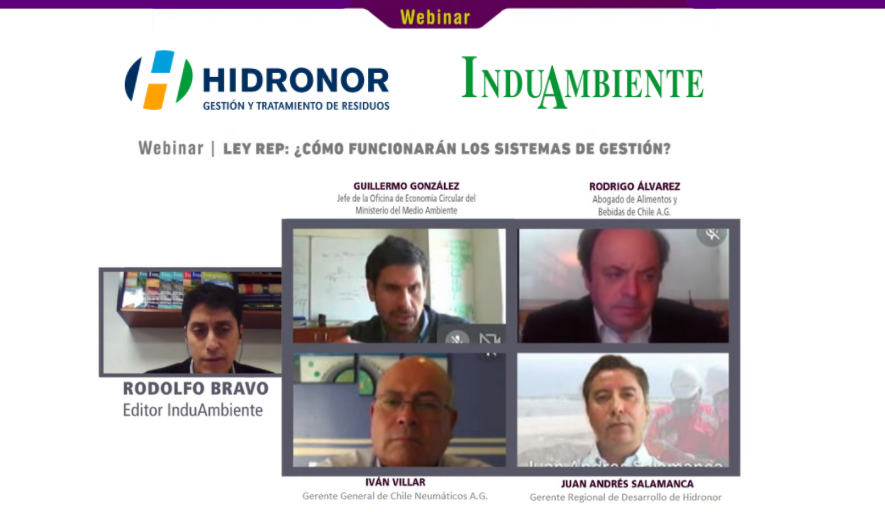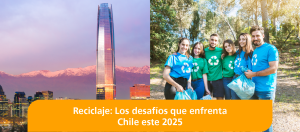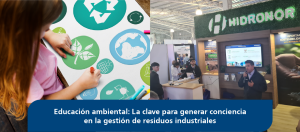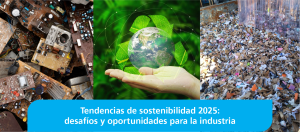In order to share key and relevant information to achieve the goals of collection and valorization of priority products established by EPR law, last Friday on May 28th, the magazine InduAmbiente together with Hidronor Chile developed a seminar on this subject to clarify a few doubts that still remain in the environment.
The event relied on the participation of more than 200 spectators and the presentation of Juan Andrés Salamanca, Hidronor's Regional Development Manager; Guillermo González, Head of the MMA’s Circular Economy Office; Rodrigo Álvarez, President of the Chilean Food and Beverage Association; and Iván Villar, General Manager of Chile Neumáticos A.G.
During the meeting, the different exhibitors informed the audience of our country’s current situation in the environmental legal field, referring to specific issues as the recycling and revaluation of waste. Thus it became evident that the goals defined for the first two priority products of the EPR law (tires and containers and packaging) have similarities in terms of the new treatment to be applied on each one, with both aiming for the same goal: to improve environmental sustainability and increase a circular economy.
Likewise, the occasion was used to differentiate the responsibilities defined by this law for each of the social roles of the company (waste producers, receivers and managers). The latter will be in charge of offering an outsourced service so that waste-producing companies can take charge in a sustainable and environmentally responsible way.
In this sense, Juan Andrés Salamanca, Hidronor's Regional Development Manager, presented the company's offer of services in terms of the management of priority products, such as waste oils, electronic / electrical devices, batteries, car batteries, packaging, among other products that the company is currently managing as an alternative for the revaluation, recycling, treatment and final disposal services of hazardous waste in Chile, which will begin to have an increase in demand over the next few years, given the established goals.
In these goals, products such as tires and containers and packaging play an important role, as these are not actually hazardous waste, these contain waste that are hazardous and can be recovered. Therefore, they fall within the general statistics to achieve the established goals.
Finally, a round of questions was held among the exhibitors in order to fully clarify the information each one of them presented, as well as the resolution of queries made by the participants.
With this type of initiative, we continue to advance towards a more sustainable Chile, which is possible thanks to the collaborative work of the public and private sectors and civil society.







